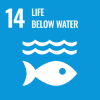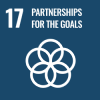WWF - Protecting Antarctic Giants
Raised $66,370
World Wide Fund for Nature (WWF) is working to Protect Antarctic Giants, supporting pioneering whale research and conservation efforts to establish marine protected areas around Antarctica.
AUSTRALIA










This donation is tax-deductible in Australia
We're no longer raising funds for WWF - Protecting Antarctic Giants , but we’d love your support for one of our other partners! Click below to check them out.
View our partnersThere is still hope to protect future generations of whales
During the 20th century, more than 2 million whales were commercially harvested to near extinction in the southern hemisphere including blue, fin, right, humpback, sei, minke
and sperm whales taken from oceanic and coastal waters. The good news is that due to conservation efforts, some species are coming back.
To protect whales and other iconic species including penguins, seals and seabirds in the Antarctic, it’s vital we protect their key prey, tiny Antarctic krill. As climate change and krill fishing increase in the Antarctic, the pressure to learn more about these majestic animals becomes more urgent.
By implementing networks of marine protected areas around Antarctica – removing or limiting commercial krill fishing from important feeding areas – will start a positive chain reaction for the ecosystem and help respond to climate change in the region.
Namely, marine protected areas will help a range of baleen whale species – particularly humpback whales – to continue to rebuild their populations. The Antarctic Peninsula’s humpback whales are classified as endangered, with one population at a mere 6,500.
How we’re Protecting Antarctic Giants
The ‘Protecting Antarctic Giants’ project will collect crucial data on whale populations in the Antarctic Peninsula and, inform future policy and management plans. Working towards two key objectives – securing Antarctic habitats and safeguarding Antarctic species – the project aims to help designate 30 percent of the Southern Ocean as marine protected areas by 2030 – safeguarding an area of ocean one and a half times the size of Australia. Until then, managing the oceans responsibly and with precaution will ensure that marine populations remain healthy and resilient.
We’re using innovative technology, such as non-invasive digital and satellite technology as well as drones to study to monitor whale species. Valuable data – including over 100 hours of video footage – on feeding techniques, habitat and movements will be collected to better understand the trends of these giants. The new research will be summarised in two science and advocacy reports to inform future Antarctic policy and garner support for critical conservation efforts.
Through its conservation programs, WWF works to safeguard a thriving, wild Antarctica with a diversity of life for future generations.
This partnership will be imperative to the development of innovative whale research in the Southern Ocean, providing solutions to further protect these incredible animals for the future.Chris Johnson, WWF Antarctica Program Lead
How to see it yourself
Join special guests from WWF and whale researchers from the University of California, Santa Cruz on an expedition to the Antarctic Peninsula. Cruise the icy waters these incredible giants call home, scout penguins on white shores, and spot seals lounging lazily on glaciers. A team of Antarctic experts and WWF scientists will be along for the ride, ready to answer your conservation questions as they conduct innovative research on these marine giants.


How your donation helps
By supporting WWF’s Protecting Antarctic Giants program, you are helping protect whale species from extinction in the Antarctic Peninsula.
Giorgia donated to WWF - Protecting Antarctic Giants
Ocean donated to WWF - Protecting Antarctic Giants
Andrew donated to WWF - Protecting Antarctic Giants
Ocean donated to WWF - Protecting Antarctic Giants
Jo-Anne donated to WWF - Protecting Antarctic Giants
You are currently on page 1 of 18
Fundraise with
WWF - Protecting Antarctic Giants
Be a part of the WWF - Protecting Antarctic Giants fundraiser by signing up and raising money for this cause.
You are currently on page 1 of 1






